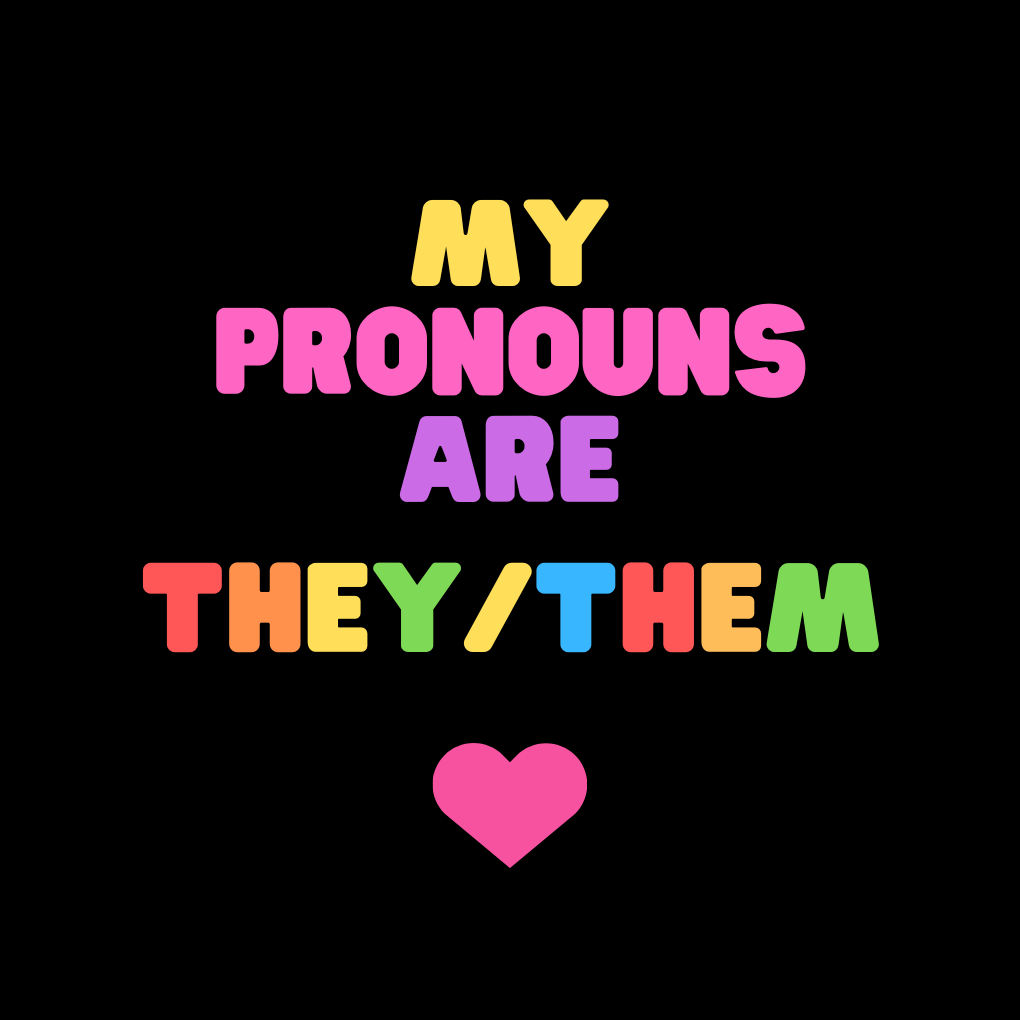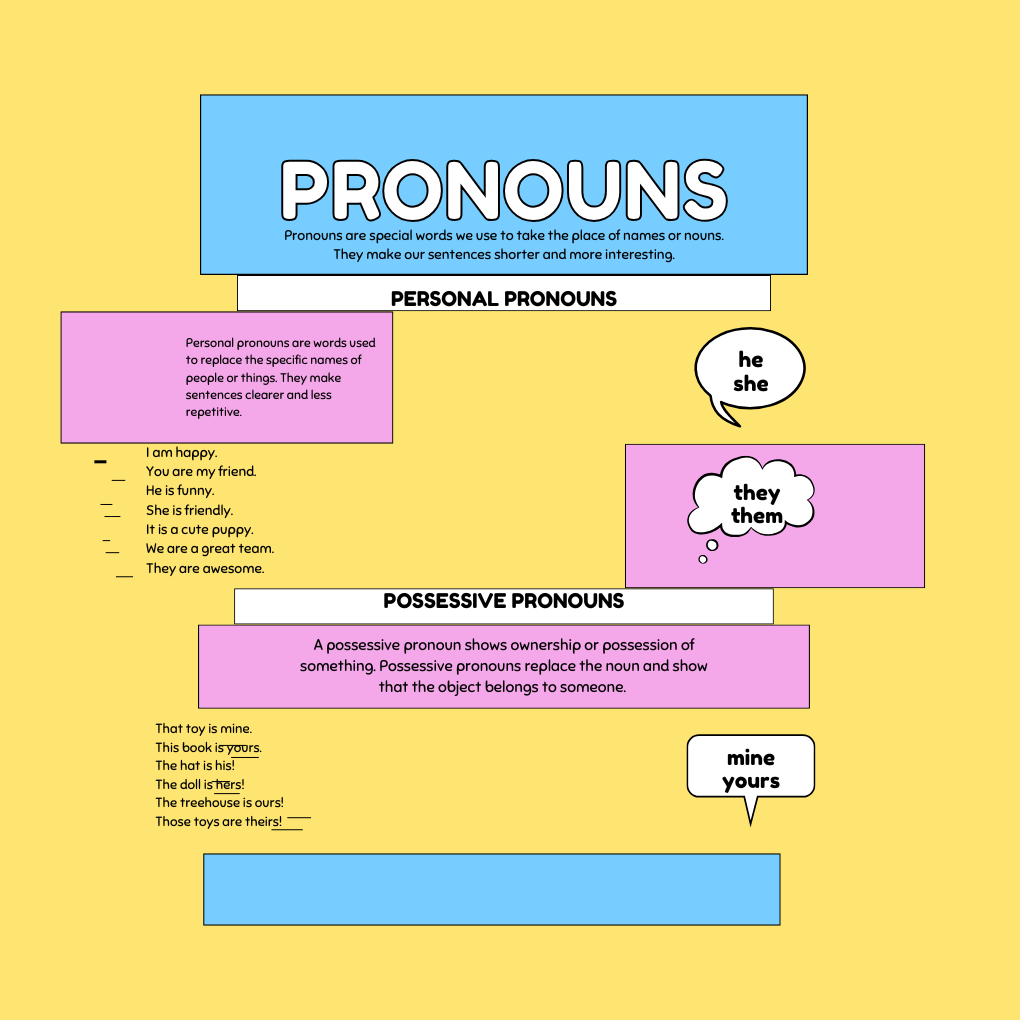When we talk or write, repeating the same names or nouns again and again can sound boring and messy. That’s where pronouns step in. They are small words, but they play a huge role in making our sentences smoother, clearer, and more natural.
Think about it: instead of saying “Ali likes Ali’s bike because Ali rides Ali’s bike every day”, we can say “Ali likes his bike because he rides it every day.”
Much better, right? That’s the magic of pronouns.
What Are Pronouns?
In simple words, pronouns are words that replace nouns. They help us avoid repetition and make communication easier. Without pronouns, our language would sound robotic and tiring.
Types of Pronouns (With Examples)
Let’s break down the main types of pronouns you’ll come across in English:

1. Personal Pronouns
These represent people or things directly.
Examples: I, you, he, she, it, we, they
- She is my best friend.
2. Possessive Pronouns
These show ownership or belonging.
Examples: mine, yours, his, hers, ours, theirs
- That phone is mine.
3. Reflexive Pronouns
Used when the subject and the object of a sentence are the same.
Examples: myself, yourself, himself, herself, itself, ourselves, themselves
- He taught himself how to code.
4. Demonstrative Pronouns
These point to specific things.
Examples: this, that, these, those
- This is my favorite book.
5. Interrogative Pronouns
Used for asking questions.
Examples: who, whom, whose, which, what
- Who is at the door?
6. Relative Pronouns
These connect a noun to a clause that describes it.
Examples: who, whom, whose, which, that
- The teacher who lives next door is very kind.
7. Indefinite Pronouns
Used for unspecified people or things.
Examples: someone, anyone, everyone, nobody, something, everything
Someone left their bag on the bench.
Why Pronouns Matter?
Pronouns may seem small, but imagine English without them it would be long-winded and confusing. They:
Help us express ideas more quickly
Save us from repetition
Make writing smooth and natural
Show possession and relationships
Final Thoughts
Pronouns are like the unsung heroes of English. We use them all the time without even realizing it. Whether it’s in a text, a story, or a casual conversation, pronouns keep our language flowing naturally.
So, the next time you say “I,” “you,” or “they”, remember you’re using one of the most powerful tools in communication.
Conclusion:
Pronouns may look like tiny words, but they make a big difference in how we communicate. They keep our sentences clear, smooth, and natural. The more you practice using them, the easier it becomes to avoid repetition and express ideas effectively.
Quick Tips to Avoid Common Pronoun Mistakes:
- Always make sure the pronoun matches the noun it replaces (singular/plural).
Example: “Everyone should bring their notebook.” - Don’t leave pronouns unclear. Your reader should always know who “he,” “she,” or “they” refers to.
- Remember: pronouns must agree in gender, number, and person with the nouns they replace.
With these simple rules, you’ll be able to use pronouns confidently in writing and speech.
FAQs:
Q1: Why are pronouns important?
Pronouns help avoid repeating the same nouns, making sentences smoother and easier to understand.
Q2: What is the difference between ‘who’ and ‘whom’?
- Who is used as a subject (Who is calling?).
- Whom is used as an object (Whom are you calling?).
Q3: Can a pronoun replace more than one noun?
Yes, pronouns like they or them can replace plural nouns.
Example: Ali and Sara are friends. They study together.
Q4: What are gender-neutral pronouns?
Words like they (singular), them, or their can be used to refer to someone without mentioning gender.
Example: Someone left their phone here.
Q4: What are gender-neutral pronouns?
Check that every pronoun clearly refers to a specific noun and matches in number and gender. If it’s unclear, repeat the noun instead of using a pronoun.

